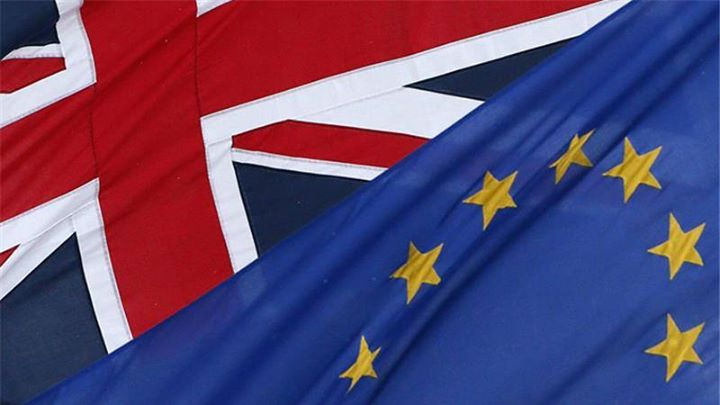By: Alison Keefner*
On June 23rd 2016, forty-six million took to the polls in a nationwide referendum on whether or not the United Kingdom (UK) would remain a member of the European Union (EU). After a night of seemingly sealed victories, tense vote counts, and distraught television commentators, 51.9% of voters decided to say au revior to the EU.[i] Some cheered, and some cried. Some stood in shock, others in awe. It was the beginning of a new stage in European politics. Brexit was supposed to be triumphant. It was supposed to be the beginning of an independent Britain taking back its borders and taking back control of its future. It was supposed to be an occasion of British citizens coming together to proclaim that the Britain is British and will always be so. Just over eighteen months later, however, the only thing that Brexit has brought is political and economic turmoil, and never-ending, seemingly futile, negotiations with EU officials in Brussels.
Most importantly, Brexit has been nothing but failed promises. The United Kingdom Independence Party (UKIP), the main party that fueled Brexit’s popularity, launched a grassroots campaign on largely debunked and unreasonable promises that, for better or for worse, 51.9% of the British population fell for. British Universities and their international populations, both students and professors, are going to the be one of, if not the hardest, hit aspect of British life during the Brexit negotiations. They will see a decline in economic output in an economy that can hardly afford such a hit. They will see a decline in academic funding in educational system that is already facing rising tuition costs and rising student protests. But arguably the most damaging impact that Brexit will wreak on British Universities is a population of international students that will start to ask one simple question: is it really worth it to study in the UK?
The biggest hot-button issue that enveloped both sides of the Brexit divide was that of immigration, namely, the freedom of movement that is guaranteed by the laws of the European Union.[ii] While the United Kingdom and Ireland never fully adopted these freedom of movement laws, but rather, held an “opt-in” option, these laws facilitated the movement of individuals from EU nations throughout those other nations in Europe that are also members of the EU.[iii] These freedom of movement laws not only facilitate travel between these nations, but also allow EU citizens to freely pursue work opportunities in neighboring countries, and provide for increased cooperation between the law enforcement agencies of each EU nation. While some saw this as a great opportunity for individuals to travel, learn, and work freely in order to better themselves, those behind the “leave” campaign saw this freedom of movement as threat on a scale ranging anywhere from a strain on social services to a national security threat.[iv] Any individual, upon meeting immigration officers at Heathrow or Manchester Airports, might note that the immigration gate is divided into two lines. To the left there are the non-EU citizens, a group of travelers standing in an ever-growing line, frantically filling out the immigration card that was given to them on the plane, being asked where they are staying, who are they are staying with, and why they are there. To the right there are the EU citizens, a line of individuals who simply flash their EU passports and a smile at the immigration officer, and then go on their way through the gate. That is EU freedom of movement laws at work, to either the nightmare or dream of British citizens.
The United Kingdom has consistently attracted one of the largest populations of study abroad and international students, second only to the United States. Between 2003 and 2013, UK universities saw a 63.3% increase in their international student population, from 255,233 students to 416,693 students.[v] The vast majority of these students come from other EU countries, who under the existing freedom of movement laws in the EU are able to attend Universities in other EU member nations through various programs.[vi] EU students are classified differently than typical international students, allowing them to travel and study in the country without having to use study visas or Tier 2 visas as other international students must have. This ease of travel and study is set to end, and is set to end soon. In a speech in July, British Prime Minister Theresa May announced that the current EU-UK freedom of movement agreements will end in 2019, a short eighteen months from now.[vii] This throws many students’ consideration of studying in the UK into question. With these freedom of movement laws being rescinded, EU students will now have to pay for visas to enter and study in the United Kingdom, a cost that adds hundreds of dollars onto an already expensive educational pursuit.[viii]
In addition to the costs of these visas, the EU students in the UK would now be considered international students, which in turn drives up the cost of attending university in the UK substantially.[ix] Currently, the UK is not allowed to charge EU students more for education than they do their domestic students, which is, on average, 9,250 pounds. This stands in stark comparison to the whopping cost that other international students pay, which can be as high as 40,000 pounds in some cases.[x] An abrupt price increase in education has the potential to drive students away from pursuing their education in the UK, which will have a massive effect on the British economy. Between 2012 and 2013, EU students in the UK made up 5.5% of the student population, contributed 3.7 billion pounds to the economy, and held 34,000 jobs.[xi] Even though Brexit is still in the negotiation stage, UK universities have already seen a 7% drop in applications from EU students, and some projections have the EU student population after Brexit dropping by a staggering 57%.[xii] With such a drop in applications already being reported, and with such dismal predictions for the future, the British economy will suffer, as will their own university students, of whom 75% do not want to see a decrease in their international counterparts on campuses.[xiii]
Students are not the only members of the international community found on college campuses: there are about 32,000 university professors across the United Kingdom that are from EU nations.[xiv] Brexit’s effect on freedom of movement and employment can cause a mass exodus of academics leaving the UK to pursue their careers elsewhere. The response from EU academics is concerning: in a survey by the University and College Union, 76% of those polled answered that they are considering leaving the UK as a direct result of the referendum vote, while a corresponding study reports that 53% of EU academics are actively looking to leave the UK.[xv] The House of Common’s Education Committee has strongly argued that this situation be treated as a matter of urgency in the course of EU negotiations, as it absolutely should be. The primary argument regarding students is that by reducing EU student numbers more spots are left open for UK students. This backwards logic is also applied to professors, but are there 32,000 UK professors that stand ready in waiting to take over these professorships? The simple answer is no. Brexit has the potential to drive away thousands of respected academics elsewhere, and will leave a massive hole in the higher education system of the United Kingdom. If the freedom of movement and employment restrictions suggested were not enough to drive EU professors away, then research funding will do it. Universities in the UK receive an additional 15% funding from the EU, a provision that will most likely be stripped as EU negotiations continue.[xvi] Threats to funding, uncertain employment status, and the overall cultural implication of Brexit that “foreigners need not apply” will drive a large part of those tasked with educating the UK’s youth out of the country.
The United Kingdom’s decision to leave the European Union was a disastrous decision on many fronts, but no issue outside that of the state of universities touches upon each of them with such a resounding effect. It will discourage EU students from studying in the UK, giving a sucker punch to the economy to the tune of 3.7 billion pounds. It will drive out EU professors through a lethal cocktail of decreased research funding, job insecurity, and an overall hostile culture. The argument that Brexit be reversed has been debated exhaustively since the morning after the referendum. If it is, in fact the will of British people to leave, then let them. However, the Brexit negotiating team needs to make the issues facing their higher education institutions a top priority. If they fail to do so, they will the solely responsible for the adverse effects on the education of future generations. Brexit began as a vote to make the lives of future Britons better. If they do not step up now and protect universities, they will be turning their backs on the foundation of their beliefs, and on the futures of their children.
[i] BBC News. “EU Referendum Results.” BBC News, accessed September 24, 2017. http://www.bbc.com/news/politics/eu_referendum/results.
[ii] Marzocchi, Ottavio. “Fact Sheets on the European Union: Free Movement of Persons.” European Parliament, last modified June 2017. http://www.europarl.europa.eu/atyourservice/en/displayFtu.html?ftuId=FTU_2.1.3.html.
[iii] Ibid.
[iv] Joshi, Amita. “General Election 2017: Where Each Party Stands on Immigration.” The Telegraph, last modified June 7, 2017. http://www.telegraph.co.uk/news/0/general-election-2017-party-stands-immigration/.
[v] International Higher Education in Facts and Figures. Universities U.K. Last modified June 2016. http://www.universitiesuk.ac.uk/policy-and-analysis/reports/Documents/2016/international-facts-and-figures-2016.pdf.
[vi] Bridgestock, Laura. “What Does Brexit Mean for Students?” Top Universities, last modified March 29, 2017. https://www.topuniversities.com/student-info/university-news/what-does-brexit-mean-students.
[vii] BBC News. “Brexit: UK-EU Freedom of Movement ‘to end in March 2019.’” BBC News, last modified July 27, 2017. http://www.bbc.com/news/uk-politics-40734504.
[viii] Bridgestock, Laura. “What Does Brexit Mean for Students?” Top Universities, last modified March 29, 2017. https://www.topuniversities.com/student-info/university-news/what-does-brexit-mean-students.
[ix] Black, Richard. “How will Brexit affect British universities and will EU students still be able to study in the UK?” The Telegraph. Last modified March 9, 2017. http://www.telegraph.co.uk/education/0/will-brexit-impact-british-universities/.
[x] Keating, Dave. “Brexit Leaves EU Students Wary of UK Universities.” Deutsche Welle. Last modified June 13, 2017. http://www.dw.com/en/brexit-leaves-eu-students-wary-of-uk-universities/a-39070881.
[xi] Black, Richard. “How will Brexit affect British universities and will EU students still be able to study in the UK?” The Telegraph. Last modified March 9, 2017. http://www.telegraph.co.uk/education/0/will-brexit-impact-british-universities/.
[xii] Keating, Dave. “Brexit Leaves EU Students Wary of UK Universities.” Deutsche Welle. Last modified June 13, 2017. http://www.dw.com/en/brexit-leaves-eu-students-wary-of-uk-universities/a-39070881.
[xiii] Bridgestock, Laura. “What Does Brexit Mean for Students?” Top Universities, last modified March 29, 2017. https://www.topuniversities.com/student-info/university-news/what-does-brexit-mean-students.
[xiv] Weale, Leslie and Lisa O’Caroll. “Brain drain threatens UK universities, MPs warn.” The Guardian. Last modified April 25, 2017. https://www.theguardian.com/education/2017/apr/25/brexit-brain-drain-threatens-uk-universities-mps-warn
[xv] Ibid.
[xvi] Black, Richard. “How will Brexit affect British universities and will EU students still be able to study in the UK?” The Telegraph. Last modified March 9, 2017. http://www.telegraph.co.uk/education/0/will-brexit-impact-british-universities/.
*Disclaimer: The content contained in the following material is the sole ownership of the author and does not reflect the views of the Towson University Journal of International Affairs nor Towson University in any respect whatsoever







